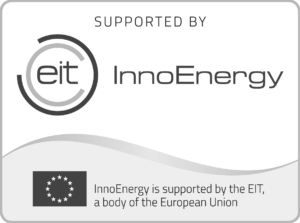20.11.2023
Siffi’s “Dashboard on Me” sets new standards in employees’ mental wellbeing

Tehnopol, in collaboration with 10 European partners, has officially introduced the Urban Tech project. This initiative is designed to provide funding, mentoring, and training to SMEs and startups based in the EU, with the aim of exploring new market opportunities in the domains of Health Tech, Greentech, and Smart Cities. In the context of this project, the Estonian startup MinuDoc has forged a collaboration with one of the largest hospitals in Estonia, the North Estonia Medical Centre (PERH), to drive innovation in the field of mental health and wellbeing. Both MinuDoc and PERH are membes of the Tehnopol HealthTech Community.
Tarmo Pihl, the CEO of MinuDoc, presented the challenge that PERH was facing, and how his startup has been working to address it.
What is the challenge that you are working on? What kind of change will it bring?
The North Estonia Medical Centre (PERH) identified the need for a more personalized approach towards offering mental wellbeing solutions to their employees. Presently, only about 2-3% of PERH’s entire staff seek therapy and use intervention services, either from PERH’s in-house clinical psychologists or their partner practices. However, the genuine demand for mental health support encompasses around 25% or even more of the employees, extending beyond the confines of traditional therapy. Therefore, the hospital sought a solution that could address the needs of their employees in more holistic and tailored ways, be it coaching, mindfulness programs or awareness materials.
MinuDoc’s international brand, Siffi, offers one-click digital access to therapists and coaches and is currently utilized by approximately 50 mid-sized corporate clients to bolster their employees’ resilience. In total, Siffi delivers mental wellbeing services to 14,000 employees, and this number is steadily growing.
Within the Urban Tech project, Siffi has developed a “Dashboard on Me” feature, allowing every employee to gain insights into their personal psychological profile along a 5-dimensional axis. The framework is based on WHO guidelines for mental wellbeing. During the MVP phase, we refined the concept, created a self-assessment framework with evidence-based questionnaires, introduced gamification, and solicited feedback from PERH through several rounds of meetings. We implemented an MVP version that PERH tested with selected employees to gather initial feedback for the pilot phase. The platform also introduced new services to its platform, such as meditation and mindfulness, audio moments and coaching programs.
The developed MVP solution offers a significant opportunity, aligning well with employers’ expectations for holistic mental wellbeing services. This 360 degree mental wellbeing solution will not only better match employers’ needs, but also enhance Siffi’s position in delivering services to their clients.
Has something similar been done before? If yes, how is your solution different?
Siffi stands out among mental wellbeing companies, providing a comprehensive wellbeing journey that begins with gamified self-assessment and extends to recommending suitable services to users. These services may include awareness-related audiobooks, meditation and mindfulness, coaching packages, or third-party services beyond the Siffi platform. This journey is unique, centred around the needs of every individual employee and takes concern not only in intervention, but also prevention.
How has the process been so far – how far are you with the solution?
The solution is now finalized, and we are embarking on a month-long pilot with our primary partner, the North Estonia Medical Centre during the month of November. Feedback from this pilot has the potential to further enhance our service and align it with the needs of enterprise-level customers, where the engagement models are quite a bit different from small and medium sized organisations.
What have been the biggest obstacles?
As is often the case in startup companies, time has been the most significant obstacle. Efficient time management and achieving goals within planned deadlines have been critical. We allocated most of our resources to launching this new product in October, as these developments are high-priority and eagerly anticipated by many other clients. This meant to keep the focus on getting this particular project done, and reprioritising other developments which are on our roadmap.
What are your plans in Estonia?
The solution we are developing and offering is global, not limited to Estonia. In fact, our international customer base is growing faster than our Estonian customer base. Our plans include continued rapid international growth, which also encompasses Estonia. Here, where only a handful of companies are properly addressing this issue, we believe there is immense potential in the market for employee mental health benefits, with plenty of room for contributions to improving employee health.
***
The key mentor for MinuDoc throughout this process has been Merilin Varsamaa, the Head of Tehnopol’s HealthTech field. Varsamaa highlighted that the partnership between the North Estonia Medical Centre and Siffi has been smooth and empowering. The solution not only offers specialized support to healthcare professionals in Estonia, but also enhances their capacity to utilize intervention methods provided by Siffi. This solution introduces a distinctive aspect to foster mental health among employees in Estonia and equips employers with a range of tools and statistics to establish an environment that nurtures and complements the well-being of their staff. The solution provided by Siffi to PERH attracted enough interest from Tehnopol itself, so that Tehnopol also decided to extend the solution to its own employees starting October this year.
The Urban Tech project has received funding from the European Union’s Horizon 2020 research and innovation programme under grant agreement No 101005301.












